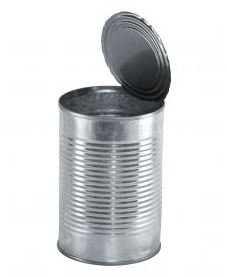The Loss of Essential Nutrients in Canned Vegetables: Essential Vitamins are Lost During Cannig
Fruits and vegetables are a rich source of essential nutrients. They are rich in vitamins and minerals that our body needs. Also, they are an important source of antioxidant compounds which are of paramount importance for anti-aging and overall good physical and mental health.
Fresh and minimally processed products (organically grown, the best) should be the preferred source for eating for fruits and vegetables. However, depending on where you live, this could be almost impossible. Vegetables are fast decaying products. They need to have some kind of processing so you can have them at home in a timely manner. Canning is one of the most used food processing operations for preserving vegetables.
Advantages of Canning Vegetables
Canning implies the application of heat to preserve foods. Foods have a defined shelf-life. Most vegetables will go bad in seven to nine days. Canning can extend the shelf-life of fruits and vegetables. In theory, canned vegetables can stay on the shelves for ever. Heat (temperatures above 100 C) has been applied to those canned foods and all the microorganisms that could cause food spoilage have been killed. In practice, the shelf-life of canned products is said to be about two to five years.
Another advantage of canned vegetables is price. Canned products are usually cheaper than fresh vegetables. This is possible thanks to mass production operations within the food processing industry and discount prices for buying raw vegetables in big quantities. Canned fruits and vegetables can make affordable eating vegetables.
Disadvantages of Canned Vegetables
The main disadvantage is the loss of nutrients in canned vegetables. Although heat kills germs and preserves the vegetable, it also affects the nutrient content of the product.
In addition to heat treatment, preliminary operations to canning (trimming, washing, peeling) can also have a definite effect on nutrient content. For example, canned tomatoes need to be peeled. This is done by alkaline treatment of the tomatoes. Although this treatment enhances peeling, it also produces a loss of labile vitamins such as folate, ascorbic acid, and thiamin. Blanching, another preliminary operation, also produces losses of vitamins.
Lund (1988) studied the loss of essential nutrients in canned vegetables. For example, green peas lost 78% of biotin, 59% of folate, 69% of vitamin B6, and 5% of thiamin. Carrots lost 75% of vitamin C and 80% of vitamin B6. More than 50% of biotin, folate, and vitamin B6 are lost in canned tomatoes.
The elevated temperatures experiences by canned vegetables accelerate reactions that would otherwise occur more slowly. This is the reason of loss of essential nutrients in canned vegetables. The particular losses of canned vegetable will depend of a multitude of factors: the nature of the food, the chemical composition, the pH of the environment in which the vegetable is canned, the presence of pro-oxidants and anti-oxidants, and so forth.
References
Fennema, R. O. (2003). Food Chemistry. Marcel Dekker, Inc.
Lund (1988). Effects of heat processing on nutrients, In “Nutritional evaluation of food processing” (Karmas and Harris eds). Van Nostrad . NY, USA
Ryley and Kajda (1993) Vitamins in thermal processing. Food Chemistry 49: 19-129.
Image Credit
Topfer at www.sxc.hu (https://www.sxc.hu/photo/967207)
